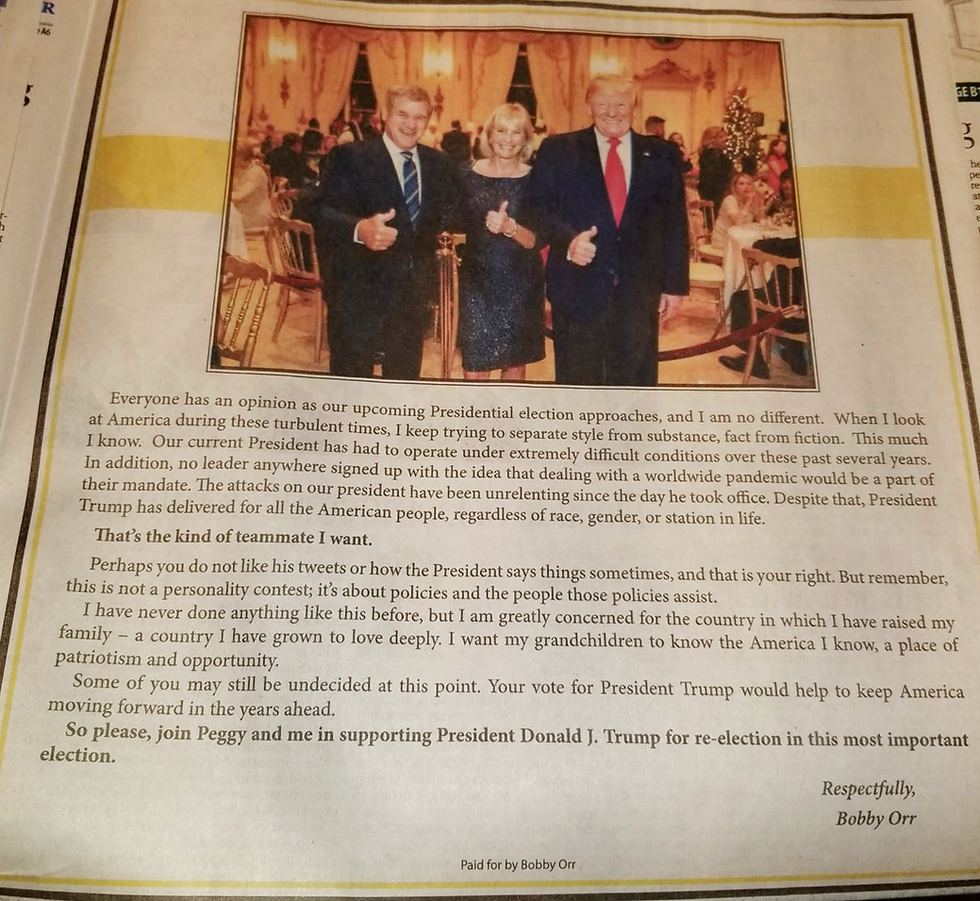The Rivalry That Never Ends
- Charlie Teljeur

- Dec 17, 2024
- 4 min read

On the 14th weekend of the American college football season there is what is called Rivalry Week which pits in-state rivals against each other in a sort of ad hoc state championship. While some of these matchups are more traditional than they are epic, there are some that seem to be woven into the very fabric of the nation. Alabama and Auburn have their Iron Bowl, Texas Tech and the University of Texas duke it out in The Battle for the Chancellor's Spurs, and Ohio State and Michigan (which has been taking place since 1918) battle in something simply called The Game.
To say that these games are intense is massive understatement. Witness the most recent Rivalry Week events where more than a half dozen of these games were affected by post game fights caused, in large part, by flag-planting incidents in which the visiting team attempts to, quite literally, plant their flag into their host’s midfield logo.
For some, this is silly gamesmanship, but for others, this is a violation of the highest order.
Take Ohio state Rep. Josh Williams who, after this very thing happened at Ohio Stadium, introduced a bill that would classify flag planting at Ohio Stadium around Buckeyes football games as a felony.
According to Williams' bill, "No person shall plant a flagpole with a flag attached to it in the center of the football field at Ohio stadium of the Ohio State University on the day of a college football competition, whether before, during, or after the competition. Whoever violates this section is guilty of a felony of the fifth degree."
A fifth-degree felony is the least severe in Ohio and carries a penalty of six to 12 months in prison, up to a $2,500 fine and up to five years' probation.
Inasmuch as this may sound ludicrous (and does), what’s more surprising is that this sort of occurrence is even considered baffling at all to some observers. That someone would go to this degree of driving home a point (both the flag-planting itself and the overt reaction to it) only seems puzzling to those who don’t truly understand the foundations of American society.
Rivalries in the United (?) States of America never end. They are as American as Mom and apple pie and are precisely why sports - at any level - are so vital to the country’s national and regional identities.
This problem runs much deeper than State playing its rival in this annual sporting ritual. This is not just a college football issue. It’s a national issue.
The United States is one big flurry of never-ending competition and you would have to be naive to think that this sort of thing won’t become commonplace. It already has.
While some will argue that this is nothing more than boys being boys and categorized as nothing more than an overabundance of boundless passion igniting a lot of senseless action, the foundation behind these sorts of outbursts are obvious.
What becomes obvious upon examining this reality in American culture is that every single place in the nation - from the smallest town to the largest city and regardless of the sport - has their own arch nemesis - a rival the locals just love to hate and a rivalry that truly defines them.
While local rivalries aren't strictly an American phenomenon, what is uniquely American is how deeply this disdain runs. How you fare against this rival - whenever and wherever you compete - defines who you are. Losing to them is unacceptable wand this translates to an implicit willingness to do most anything to avoid this sort of public humiliation. Keep in mind these are, by definition, just meaningless games.
Given a country with a rigid, choose-a-side, two-party political system, flavoured with the stark realities of the winners and losers in a capitalist succeed-or-die capitalist mindset, it’s not hard to see how this behaviour can spill over to the playing field. It’s the natural, and irrational, extension of competition being a bedrock principle of who you are.
These aren’t just on-field issues. They are symptoms of a larger ailment. That someone would put this much importance into (metaphorically) claiming another’s “sacred” territory whether through flag-planting or any other absurd over-the-top action, shows how deep the dilemma runs.
This is not meant to conclude that all competition is inherently bad. It’s arguably the main driver in what has made America a great country and a formidable force in the world but, in reality, it's not the competing part that has driven America so much as it is its insistence on winning. Whether that’s a trade war, a real war or a meaningless football game.
America has always been a must-win nation and its growing inability and unwillingness to value the spirit of competition above its fixation on winning is highlighted by the commonality of sensational events like these.
Romanticize "winning at all costs" however you like but know full well this is not the wholesome tradition you want to think it is, or ever was.
******



Comments